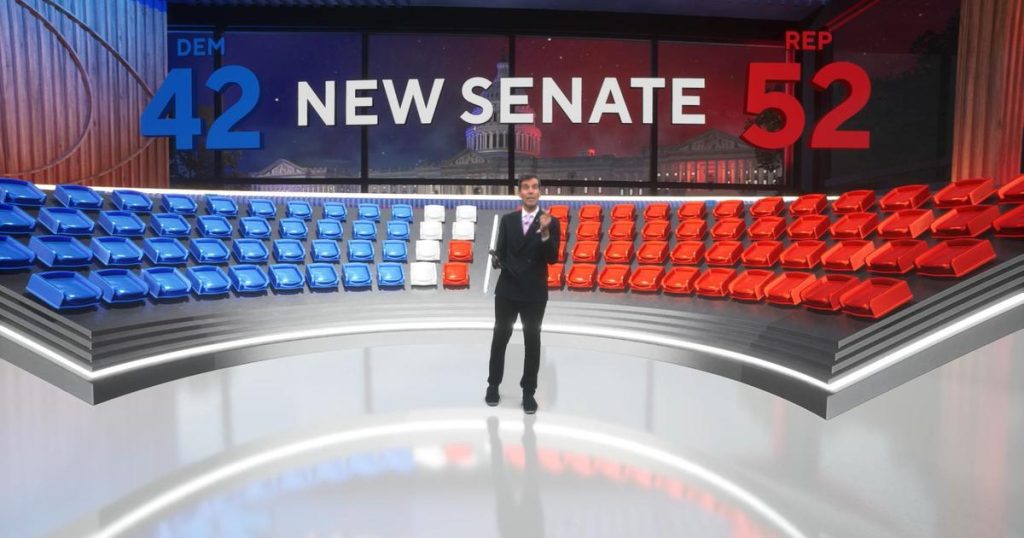In the 2022 midterm elections, Republicans were able to secure control of the Senate, giving them more power in Washington. However, the control of the House of Representatives remained uncertain, with the final outcome still undetermined. This shift in power has significant implications for Washington’s power dynamics and could potentially impact the direction of legislation and policy decisions in the coming years.
One of the key questions following the Republican victory in the Senate is how this will affect the balance of power between the two major political parties. With control of the Senate, Republicans will have more influence in shaping legislation and confirming appointments, potentially giving them a greater ability to block or advance key initiatives. This could lead to increased tension and gridlock in Washington, as both parties seek to advance their agendas and secure political victories.
The uncertainty surrounding the control of the House of Representatives adds another layer of complexity to the political landscape. If Republicans are able to retain control of the House, they will have a stronger foothold in Congress and more leverage in negotiations with the Biden administration. However, if Democrats are able to maintain control, they will have a greater ability to advance their legislative priorities and push back against Republican efforts to block or roll back key initiatives.
The outcome of the House races will have far-reaching implications for Washington and the country as a whole. The balance of power between Republicans and Democrats will shape the agenda of the legislative branch and determine the direction of key policy decisions on issues ranging from healthcare and the economy to immigration and national security. The stakes are high for both parties, as they seek to secure their political interests and advance their policy goals in the face of divided government.
In the wake of the midterm elections, all eyes will be on Washington as lawmakers navigate the new political landscape and work to find common ground on pressing issues facing the country. The results of the election will undoubtedly impact the dynamics of the Biden administration and shape the trajectory of the legislative branch in the coming years. It remains to be seen how Republicans and Democrats will work together, or against each other, to address the challenges and opportunities that lie ahead.
Overall, the Republican victory in the Senate and the uncertainty surrounding the control of the House have set the stage for a period of intensified political maneuvering and conflict in Washington. The outcome of the midterm elections will have ripple effects across the country, shaping the future of legislation, policy decisions, and political alliances. As lawmakers and party leaders navigate this new landscape, the American people will be watching closely to see how their elected officials respond to the challenges and opportunities that lie ahead.














